EU postpones ministerial discussion on Iran to March
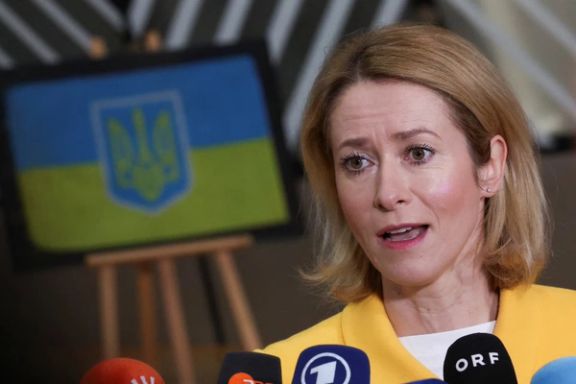
European Union foreign policy chief Kaja Kallas said on Monday that a planned ministers-only discussion on Iran was postponed due to the absence of key foreign ministers.

European Union foreign policy chief Kaja Kallas said on Monday that a planned ministers-only discussion on Iran was postponed due to the absence of key foreign ministers.
“On Iran, we were supposed to have discussions, ministers-only format, regarding Iran today but because very important foreign ministers were missing, so we postponed this,” Kallas said.
“The point was to have ministers-only discussion to get the understanding where we are so that we are able to come out with initiatives and concrete proposals,” she added, confirming that the meeting has been postponed to March.
Last week, Laurence Norman of The Wall Street Journal reported that that European Union foreign ministers we due to meet on Monday for a ministerial discussion focusing on Iran.
In a post on X, Norman said the agenda "will span Tehran’s support for Russia, its nuclear advances, its arrest of European citizens among other issues."
"First @kajakallas move to tighten EU stance on Iran," he added, referring to EU foreign policy chief Kaja Kallas. Norman cited the EU diplomat as saying the Joint Comprehensive Plan of Action (JCPOA) will be one of five key topics discussed.
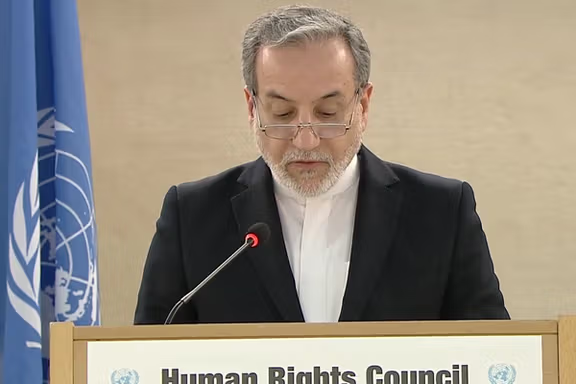
Iran defended its human rights record and condemned Western sanctions at a United Nations Human Rights Council meeting in Geneva.
“For decades, the Iranian people have faced grave challenges, including unjust economic sanctions and terrorism, which have had many devastating impacts on their social and economic rights,” Foreign Minister Abbas Araghchi said in a speech on Monday.
Araghchi, however, did not acknowledge that sanctions against Iran include those for human rights violations, which have targeted both individuals and entities across government sectors from the IRGC to the prison services. Other sanctions have been for Iran's support of Russia's war on Ukraine and its ongoing nuclear program.
The number of people executed in Iran rose from 834 to 901 in 2024, including 31 women, the UN Human Rights Office said in January. The figures have reached record highs since 2022.
While Araghchi said Tehran is committed to improving human rights and cited achievements in education, healthcare, and women's rights, Iran has restricted women's freedoms, including the violent enforcement of hijab laws.
Iran has frequently used violence to suppress demonstrations, including the 2022 protests following the death of Mahsa Amini in morality police custody. Iranian forces killed hundreds of protesters, and arrested thousands more.
Iran's top diplomat also warned against the “politicized use of human rights” as a tool for pressure saying, “Human rights may not be used as a leverage of political and economic pressure or interference in the internal affairs of countries.”
The Islamic Republic has been accused of detaining foreign nationals and dual nationals on vague charges as a means of gaining leverage in diplomatic negotiations—a practice rights groups describe as 'hostage diplomacy'.
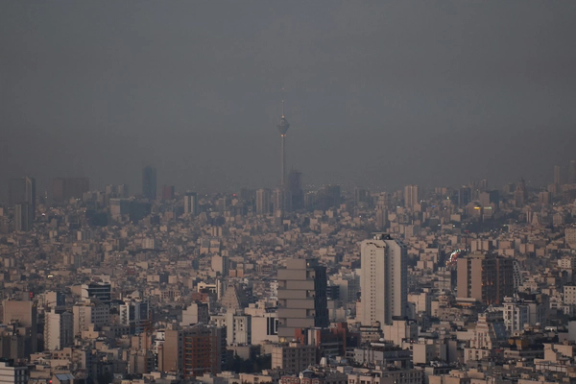
Government offices, banks, and schools across most of Iran remained closed on Monday as a worsening energy crisis forced authorities to shut down public services in at least 22 of Iran's 31 provinces.
The closures, driven by severe gas shortages and electricity cuts, have left Iranians accustomed to working weeks of just two or three days.
With snow, rain, and plunging temperatures further straining the country’s already fragile energy infrastructure, provincial officials announced the shutdowns late Sunday, impacting regions including Tehran, Mazandaran, Gilan, Golestan, Isfahan, Markazi, Kerman, Hamedan, etc.
In Tehran, schools, courts, and government offices suspended operations entirely, with authorities mandating that all heating systems be turned off to conserve fuel.
“This isn’t about bad weather,” said Nima, a wholesaler of car spare parts in the capital. “The government announces these closures to cover up its energy failures. They know if they don’t shut things down, people will protest over the lack of heating and electricity,” he told Iran International.
A large number of Iranians said on social media that in some provinces, schools were declared closed without arrangements for online classes. However, many said that virtual education is unreliable anyway, as power outages also disrupt internet access.
The country’s aging telecommunications infrastructure lacks backup battery systems, further limiting connectivity.
The frequent shutdowns have hit businesses hard, particularly as Iran nears Nowruz, the Persian New Year, when many retailers rely on a seasonal surge in consumer spending. Hamid, 38, who runs a clothing boutique in Tehran’s Gisha neighborhood, said sales have plummeted.
“We wait 11 months for this last stretch before Nowruz to make a profit, but every week, we lose two or three working days,” he told Iran International. “This morning, I sold just two pairs of pants and a shirt, which were already discounted. Meanwhile, my bounced checks are piling up.”
Iran’s work week has long been out of sync with the global economy, with weekends falling on Thursday and Friday instead of Saturday and Sunday. Nima said the latest wave of shutdowns has made the situation even worse.
“Iranian businesses already struggle because we only overlap with the international market for three days a week,” he said. “Now, with these extra closures, we’re essentially shut down half the month. How can there be an economy in a country that’s closed for business?”
Compounding the crisis, the Iranian rial continues to weaken against the US dollar amid economic pressures from US sanctions. The falling currency has further eroded purchasing power, leaving many consumers unable to afford even discounted goods.
Public sector closures have become a frequent occurrence in Iran, with schools and offices repeatedly shut in recent months due to pollution, dust storms, cold weather, and fuel shortages.
While officials cite weather conditions for the latest round of shutdowns, weather tracking services have not predicted subzero temperatures or heavy snowfall for many of the affected provinces.
For business owners like Hamid and Nima, the pattern is clear. “It’s not about the cold,” Nima said. “It’s about the country running on empty.”
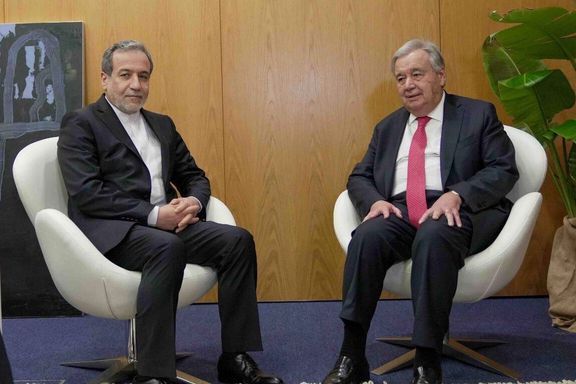
Iran’s Foreign Minister Abbas Araghchi met with UN Secretary-General António Guterres on the sidelines of the Conference on Disarmament in Geneva on Monday, Iran’s official news agency IRNA reported.
The Conference on Disarmament (CD), established in 1979, is a UN-affiliated multilateral forum for arms control and disarmament negotiations.
It focuses on nuclear disarmament, preventing an arms race in space, and curbing weapons proliferation. Held annually in Geneva, it includes 65 member states.
According to IRNA's report, Araghchi and Guterres discussed global security challenges and the need for international cooperation to promote stability.
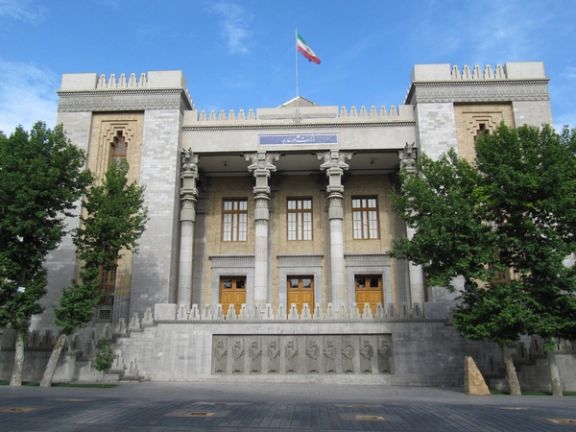
Iran’s foreign ministry on Monday said it has summoned Poland’s chargé d'affaires in Tehran following comments made by Polish Foreign Minister Radek Sikorski, who last week criticized Iran and Russia's military cooperation.
"In response to the biased and baseless remarks made by the Polish foreign minister against our country, Marcin Wilczek, Poland’s chief envoy in Tehran, was summoned by Mahmoud Heidari, the assistant foreign minister," the statement read.
While the ministry did not elaborate on the specifics of the comments they rebuffed, semi-official IMNA news agency reported that the summons followed Sikorski’s role in facilitating the transfer of an Iranian-made drone from Ukraine to the US for display at the Conservative Political Action Conference (CPAC).
Speaking about his involvement, Sikorski told The Wall Street Journal last week, “There is an axis of aggression between Iran and Russia. The Islamic Republic is sending death and destruction into all directions, and we need to jointly, directly, face the threat and remove it.”
On taking credit for the trophy drone, Sikorski said, “We have to remember that the first credit needs to go to the Ukrainians, who shot the thing down.”
According to WSJ, Sikorski helped to facilitate the drone’s procurement for the US-based nonprofit organization, United Against Nuclear Iran (UANI).
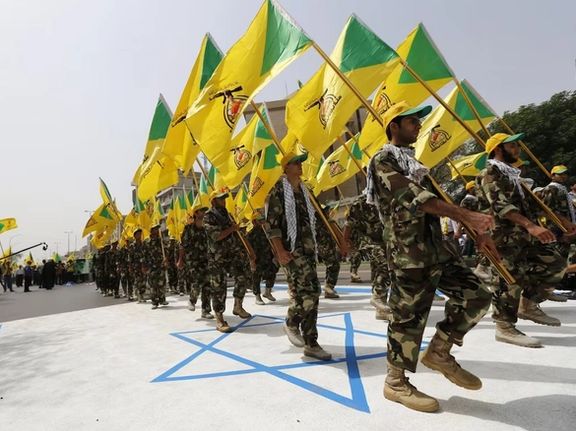
The Iranian government says that domestic tax revenue is not being spent on supporting its regional military allies amid a deepening economic crisis plunging millions of Iranians into poverty.
Mohammad Hadi Sobhanian, head of Iranian National Tax Administration (INTA), told ILNA: “There is absolutely no discussion regarding the payment of taxes for overseas projects, and it is not the case that people pay taxes and the taxes are spent outside the country.”
He instead pointed to the government’s tax earmarking plan, which he said provides greater transparency in how revenue is allocated.
But leaked reports of Iran’s financial assistance to regional groups such as Hezbollah in Lebanon are fueling anger while at home, Iranians are suffering with mass unemployment and poverty.
On Tuesday, Supreme Leader Ali Khamenei met in Tehran with leaders of Palestinian Islamic Jihad, who were seeking further financial aid.
Meanwhile, Hezbollah has been expanding its network of interest-free loan funds, using Iranian support to provide financial relief to its followers.
Tehran recently allocated over $10,000 per family to Lebanese households affected by the most recent conflict with Israel, according to sources familiar with the matter. The funds were distributed among Shiite families aligned with Hezbollah.
Naim Qassem, Hezbollah’s newly appointed secretary-general, described the payments as a “gift from the Islamic Republic.”